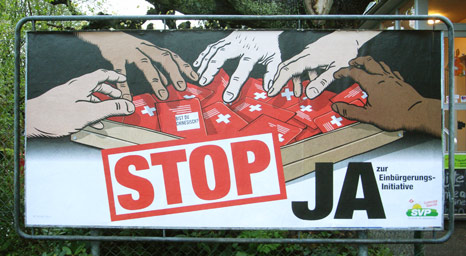
somehow adding the possessive onto land, culture and state i find a very disturbing thing, in one sense, and i wonder if it is really possible to create a multiplicity of all these “my beijing”s or “my switzerland”s. hierarchies will always develop, and someone’s beijing, or someone’s border territory, someone’s right to do this or that —- will always conflict with another’s. so is the city really a multipli-city? or just the nether spaces formed by the holes left when one version stamps on another, because we would like to believe that our versions of the city, the vision that we see, supposedly exists and is true, some sort of concreteness and counter-confirmation of our own existence in the world?
i am interested to know yes more about how tremblement may intersect with this, the nether spaces and the disjunctures. is public something collective or just a throwing together of the private interests with the most money and power? “one world, one dream”. it’s a funny hallucination of the collective imaginaire.
and yes, when does the interest of an individual become a collectivity? when does the collective become representative? when and where do individual migrations influence social security, or personal sentiments? i’m not sure how to consider all of this under the umbrella of a “collectivist society” in the first place.
oh…we have so much to talk about!

 时间 posted on: 14 May 2008 |
时间 posted on: 14 May 2008 |  发布者 author:
发布者 author: 
 分类 filed under:
分类 filed under:
May 15th, 2008 - 20:52
i am reading through some lyotard for a class in Saas-Fee, and a classmate of mine wrote some interesting thoughts that can relate to our discussion here:
“Most importantly, to me, is the revised notion of what it even means to say “to be” this, or “to be” that – in that to be pagan isn’t a formula of a set of beliefs, but regulated merely on an Idea. Justice, or what is Just, wouldn’t therefore be a set of rules to stand against time, solid, stoic and impregnable, but a space that invites fluid movement of its contents, as its core characteristic. What does this translate into, when we are talking about shared societies, nations, states? Will these become outdated concepts? How far can multiplicity go, before the pieces become small enough to change its chemical make up? Maybe this type of agitation is favorable.
Didn’t we already say that entropy and unity are always attempting to outweigh each other? (Postmodern Fables, Lyotard)
I think developing a thirst for this level of uncertainty is the healthy quotient that has been underestimated for some time… have these principles (or lack there of) been applied since the printing of this text in 1979? Will it take centuries, weeks, days? With media’s persuasion in overtaking the senses, are we less or more capable of engaging an “imagination that does not occult itself” (Just Gaming, page 18)?”
wondering if it is possible to relate some of the ‘concepts’ of Chinese society, and do they apply, or can they be applied, to conditions of postmodernity? What kind of fluidity of movement does an individual have in a nation of “one party, two systems”, and when does imagination coincide with simply getting by?